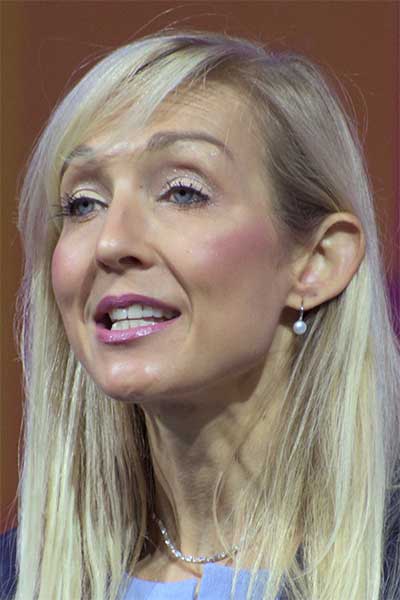Rheumatoid arthritis (RA) is now widely acknowledged as an independent risk factor for the development of cardiovascular (CV) disease.

Two cardiologists who have been working closely with rheumatologists and pursuing further care and research of rheumatic conditions presented Navigating Cardiovascular Risk for Inflammatory Arthritis: View from Cardiology. They discussed the CV factors rheumatologists should consider when initiating therapy for a patient and the clinically available tools that can aid in CV risk assessment.
They also advocated for the new, but growing, interdisciplinary field of cardio-rheumatology. Encouraging the growth of this field, they believe, will strengthen partnerships with cardiology to improve the care of rheumatic disease patients.
This session is available on demand for registered ACR Convergence 2023 participants through Oct. 31, 2024, on the meeting website.
“RA patients have about the same risk of having a CV event as diabetics,” said Michael Garshick, MD, MS, Assistant Professor of Medicine at New York University.
Research has shown significant shared inflammatory pathway overlap between RA and atherosclerotic cardiovascular disease (ASCVD), which led investigators to hypothesize that treating RA might lead to lower CV risk.
However, when researchers analyzed the effects of triple therapy and tumor necrosis factor (TNF) inhibitors, they found no significant change in CV outcomes. Other RA therapies, such as several Janus kinase (JAK) inhibitors, recently received black box warnings from the U.S. Food and Drug Administration (FDA) that warn of an increased risk for serious CV events.
Dr. Garshick explained that cardiologists didn’t begin widely utilizing anti-inflammatory treatment strategies to combat CV risk until the publication of the 2017 CANTOS trial, which found that anti-inflammatory therapy led to a significantly lower rate of recurrent CV events.
Both presenters were excited about the newly FDA-approved anti-inflammatory agent colchicine.
“If we give low-dose, 0.5 mg of colchicine to high CV-risk individuals, you get a 30% relative reduction in CV events,” Dr. Garshick said. “Colchicine was just FDA approved for the prevention of CV disease. It even has a similar indication to statin therapy, so very exciting times for us in the fields of inflammation and CV disease.”

Brittany Weber, MD, PhD, Brigham and Women’s Hospital, highlighted the versatility of colchicine, noting that it can be utilized for primary or secondary CV risk prevention.
She also spoke about the heterogeneous manifestations of patients with rheumatic diseases who present with CV issues and about the recent expansion of CV imaging tools.
“Cardiologists, we feel like kids in a candy store with all the tools in our toolbox,” Dr. Weber said.
She listed cardiac MRI, with the ability to stress components, and coronary CT, which can capture inflammation in novel ways. She also highlighted myocardial perfusion PET stress tests that interrogate the microvascular system in patients with systemic inflammatory conditions.
These different modalities present exciting new advancements but also increase the complexity for providers in deciphering which to use for each patient. Dr. Weber’s paper outlining the optimal uses for these imaging technologies will soon be published in the Journal of the American College of Cardiology.
“We hope to provide some guidance to both the rheumatologists and the cardiologists about how we can utilize all these imaging modalities when we are both trying to diagnose risk assessment and monitor our patients with systemic rheumatic diseases,” she said.
Drs. Garshick and Weber emphasized the importance of interprofessional collaboration between rheumatologists and cardiologists. Dr. Weber added that it was an impossible task for rheumatologists to attempt to manage this risk on their own.
“I think with the two fields coming together, we can advance the care of our patients,” she said.
Register Today for ACR Convergence 2025

If you haven’t registered for ACR Convergence 2025, register today to participate in this year’s premier rheumatology experience, October 24–29 in Chicago. All registered participants receive on-demand access to scientific sessions after the meeting through October 31, 2026.
